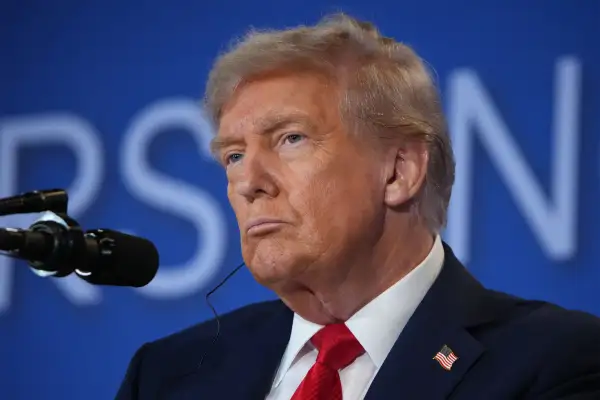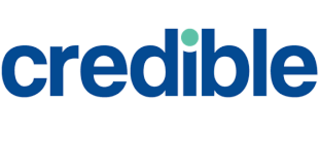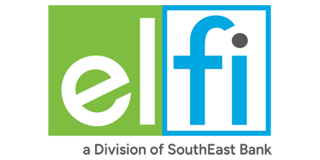5 Things to Know About the Trump Administration’s Plans to Limit PSLF

The Trump administration is moving forward with an attempt to restrict a popular student loan forgiveness program.
The Education Department published language on Monday detailing plans to limit eligibility for Public Service Loan Forgiveness through a proposed rule that would disqualify employers who are "engaged in activities with a substantial illegal purpose," the department said in a press release. The administration argues the changes would protect taxpayers' interests and improve the forgiveness program by keeping it focused on jobs that actually provide a public service.
But advocates for borrowers and organizations representing professions that benefit from the program say the move is an attempt to penalize groups the administration doesn’t agree with.
"This is a blatant attempt to weaponize student debt to achieve their political objections," says Persis Yu, deputy executive director at the Student Borrower Protection Center. The language outlining what could cause an organization to lose eligibility is "specifically tied to activities that we know that the administration has been hostile toward," she adds.
Congress passed Public Service Loan Forgiveness, or PSLF, in 2007 to offer an incentive to borrowers considering government or nonprofit jobs. In exchange for working in fields that are often lower-paying but serve critical public needs, borrowers can have their federal student loans forgiven if they work for an eligible employer and make 120 qualifying monthly payments. More than one million borrowers have benefited from the program so far.
The proposal to restrict the program stems from an executive order President Donald Trump issued in March, and it's moving through a process known as negotiated rulemaking, which has included two public hearings, three sessions with committee members to discuss the changes. It now moves to a public comment period.
Here’s what borrowers need to know.
The rule seeks to "clarify" the definition of a qualifying employer
Public Service Loan Forgiveness is based not on what an employee does but on where they work. Up until now, any government job or 501(c)(3) organization has been considered a qualifying employer. The new rule aims to change the language around that to exclude any organization or government entity participating in "substantial illegal activities."
The definition of "substantial illegal activities" is narrow in the sense that the rule explicitly identifies the areas of potential illegal behavior that the administration is focused on. They include aiding or abetting violations of immigration laws, providing gender-affirming medical care to minors, supporting foreign terrorism, violating federal discrimination laws and "engaging in violence for the purpose of obstructing or influencing federal government policy."
Yu argues that the list of activities makes it clear that the proposed rule is more about achieving the administration's policy objectives than about protecting public interest.
"They’re targeting public service workers who are working with very vulnerable populations, like transgender youth and on immigration justice issues," Yu says. "We've seen this administration go after cities for their sanctuary city policies, and this is just another tool that they are using in order to suppress public service workers, their employers and local governments."
The administration writes in the rule that it estimates fewer than 10 employers a year would be affected and that about 10% of borrowers working toward PSLF could be affected due to their employer becoming ineligible. But there is nothing explicit in the rule that limits the scope to that amount.
And critics of the rule note that, as written, every employee at an affected organization would lose eligibility for forgiveness, not just those participating in activities deemed illegal. That presents challenges for large employers like cities, hospitals or universities whose staffers work in a variety of jobs and fields.
It’s very likely to face legal challenges
There is now a public comment period that runs through Sept. 17. After that, the administration will publish its final rule, which would take effect next summer.
But multiple experts say they expect the rule to face lawsuits. Public Service Loan Forgiveness is written into statute, and the language in the law clearly states that "qualifying employer" includes any government entity as well as any organization that has a 501(c)(3) status with the IRS.
"Sometimes Congress writes laws that are a bit ambiguous, but when it comes to PSLF, they were pretty clear in what determines a qualified employer," says Ben Cecil, senior education policy advisor at ThirdWay, who called the rule "ripe for litigation."
If the rule is challenged in court, it could be thrown out altogether if a judge finds that the regulations contradict federal law, or the implementation could be delayed while the court case plays out. One regulation known as "gainful employment" went through a similar rulemaking process and then dragged on through multiple legal challenges and different presidential administrations for more than a decade.
It wouldn’t apply retroactively, but current borrowers would be affected
It's critical that borrowers understand these changes wouldn't apply retroactively, says Betsy Mayotte, president of The Institute of Student Loan Advisors. The administration is aiming to finish the rule this fall so it can take effect on July 1, 2026. Any credits earned toward forgiveness before that date would not be affected, and any actions taken by employers before that date aren't subject to the new standards.
But current borrowers who are somewhere on the road to the 120 payments needed to qualify would be held to the new rules, which means some may see their progress toward forgiveness delayed or stopped altogether if they continue working for an employee deemed ineligible by the administration.
Officials noted this in the rule language, writing the changes "may delay or prevent forgiveness for a subset of borrowers," but that "the overall design of the regulations — including advance notice, transparency around determinations and employer recertification pathways — helps mitigate unexpected harm." The administration also says that affected borrowers are free to continue pursuing PSLF by changing jobs to a different qualifying employer.
The Education Department would be in charge of determining an employer's eligibility
If there are no successful court challenges and the rule does take effect as written, the Education Department would be tasked with managing the process for determining whether employers are ineligible, notifying borrowers of changes to their employer's status, overseeing appeals and more.
Employers can be disqualified through a few avenues: by court rulings, a guilty plea or a settlement, for example. The rule also allows the secretary of education to use a standard called "preponderance of evidence” to determine whether an employer engaged in substantial illegal activities.
That last avenue was concerning to Mayotte, who served on the negotiating committee and voted against the rule. She doesn't think the secretary of education should have the power to determine whether someone is violating the law as it relates to discrimination, protests or gender-affirming care. That's "not in the secretary's wheelhouse," she says.
Organizations do have the option to appeal, although the process for that isn't clear. And the rule states borrowers are not allowed to ask the department to reconsider a decision regarding their employer.
Finally, the education department will oversee the process for employers to regain their qualifying employer status, which can happen 10 years from the date the secretary determines the employer engaged in illegal activities or after the secretary approves a corrective action plan.
Borrowers shouldn't make any drastic decisions
Mayotte describes the proposed rule as a "worrisome precedent," but she doesn't want borrowers to make drastic changes to their repayment strategy right now based on a still-to-be-finalized rule. (One borrower she talked to, she says, was considering giving up on PSLF and withdrawing from her retirement savings to pay off her loans.) It's important for borrowers to know that nothing about the program has changed yet.
More from Money:
Trump’s Big, Beautiful Bill Changes Student Loans and Monthly Payments. Here's How





